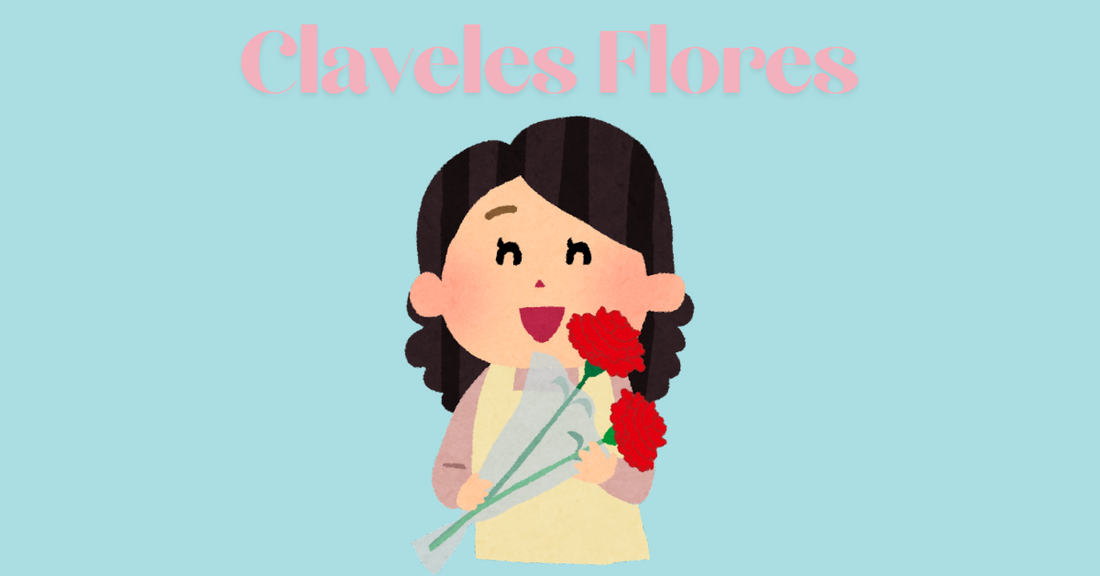Origin and Varieties of Carnations
Carnations (Dianthus caryophyllus) originate in the Mediterranean region, where they grow wild. As they have been cultivated and improved over the centuries, numerous varieties have emerged, offering a stunning range of colors and shapes. From classic red carnations, which symbolize love and admiration, to more unusual colors, such as blue or black, there is a perfect choice for every occasion.
Carnations and their Symbolism
Each carnation color carries a particular meaning. For example, red carnations are ideal for expressing love, while white carnations are often used in wedding ceremonies, representing purity and new beginnings. Yellow carnations, although once associated with hopelessness, are now a symbol of friendship and joy. This variety of meanings makes them the perfect choice for any celebration or sentiment you wish to express.
The Best Varieties to Grow
If you decide to grow carnations at home, you'll be happy to know that there are many varieties adapted to different climates. Some of the most popular are long-stemmed carnations, ideal for bouquets, and dwarf carnations, perfect for window boxes and pots. When choosing your carnations, consider the space you have available and the environment in which you plan to plant them. To purchase the best varieties, I always recommend visiting Verbena Flores , where you'll find fresh, high-quality carnations.
Essential Care of Carnations
To enjoy the beauty of carnations , it's crucial to know their basic care. These flowers require well-drained soil and adequate sun exposure. They generally thrive in temperate climates and do not tolerate frost well.
Irrigation and Nutrients
Water carnations regularly but carefully. It's important to avoid waterlogging, as this can cause root rot. A good tip is to water when the top of the soil is dry to the touch. Additionally, applying a balanced fertilizer during the growing season will help your carnations bloom lushly. At Verbena Flores , you'll not only find carnations, but also tips on how to properly care for them.
Pests and Diseases
Like any plant, carnations can be affected by pests and diseases. The most common are aphids and rust. To combat these, it's recommended to use natural insecticides or homemade solutions. It's also essential to maintain good ventilation around the plants to prevent fungal diseases. Prevention and proper care are key to keeping your carnations healthy and beautiful.
Uses of Carnations in Events and Decorations
Carnations are an excellent choice for a variety of occasions. From weddings to birthdays, their versatility makes them a popular choice among florists and decorators.
Carnations at Weddings
At weddings, carnations can be used in bouquets, centerpieces, and floral arrangements. Their durability and wide range of colors make them perfect for matching the wedding theme. Red and white carnations are especially popular in romantic ceremonies, while yellow carnations can add a cheerful touch to the celebration. If you're planning a wedding, be sure to visit Verbena Flores to find fresh carnations to complement your decor.
Decoration for Other Celebrations
Beyond weddings, carnations are ideal for birthdays, anniversaries, and corporate events. You can use them to create floral arrangements that brighten any space. Their soft fragrance also makes them an attractive choice for interior decoration. If you want to stand out at your next event, consider including carnations in your decor. At Verbena Flores , you can choose from a wide variety of carnations to suit your style and occasion.
Frequently Asked Questions about Carnations
How long do cut carnations last?
Cut carnations can last 7 to 14 days if properly cared for. To prolong their life, be sure to change the water in the vase regularly and cut the stems at an angle.
How do carnations reproduce?
Carnations can be propagated from seeds or cuttings. Propagation from cuttings is especially effective, as it allows you to obtain plants identical to the parent plant.
Are carnations toxic to pets?
No, carnations are not toxic to pets like dogs and cats. However, it's always a good idea to supervise your pets to prevent them from chewing on the plants.







